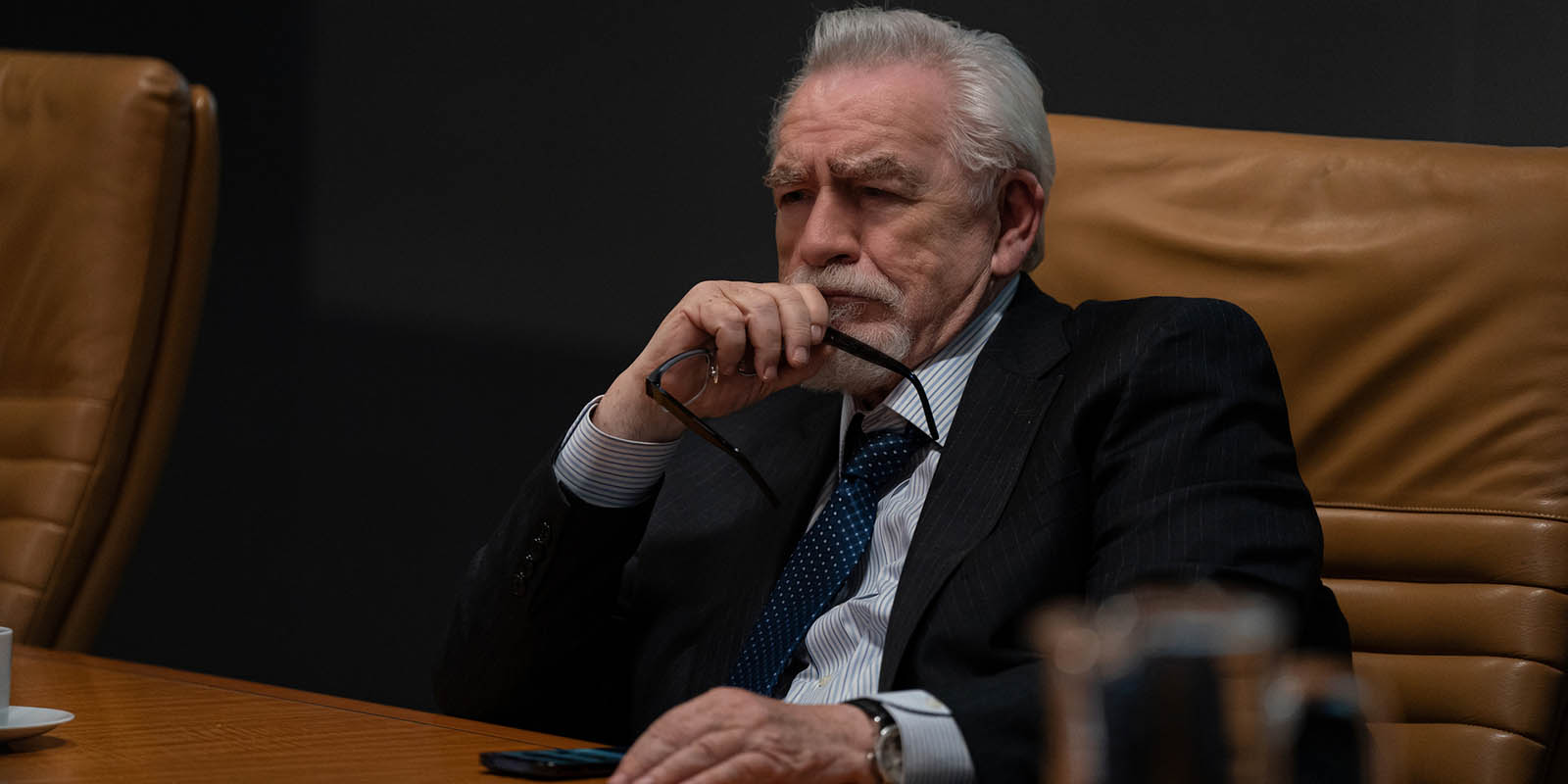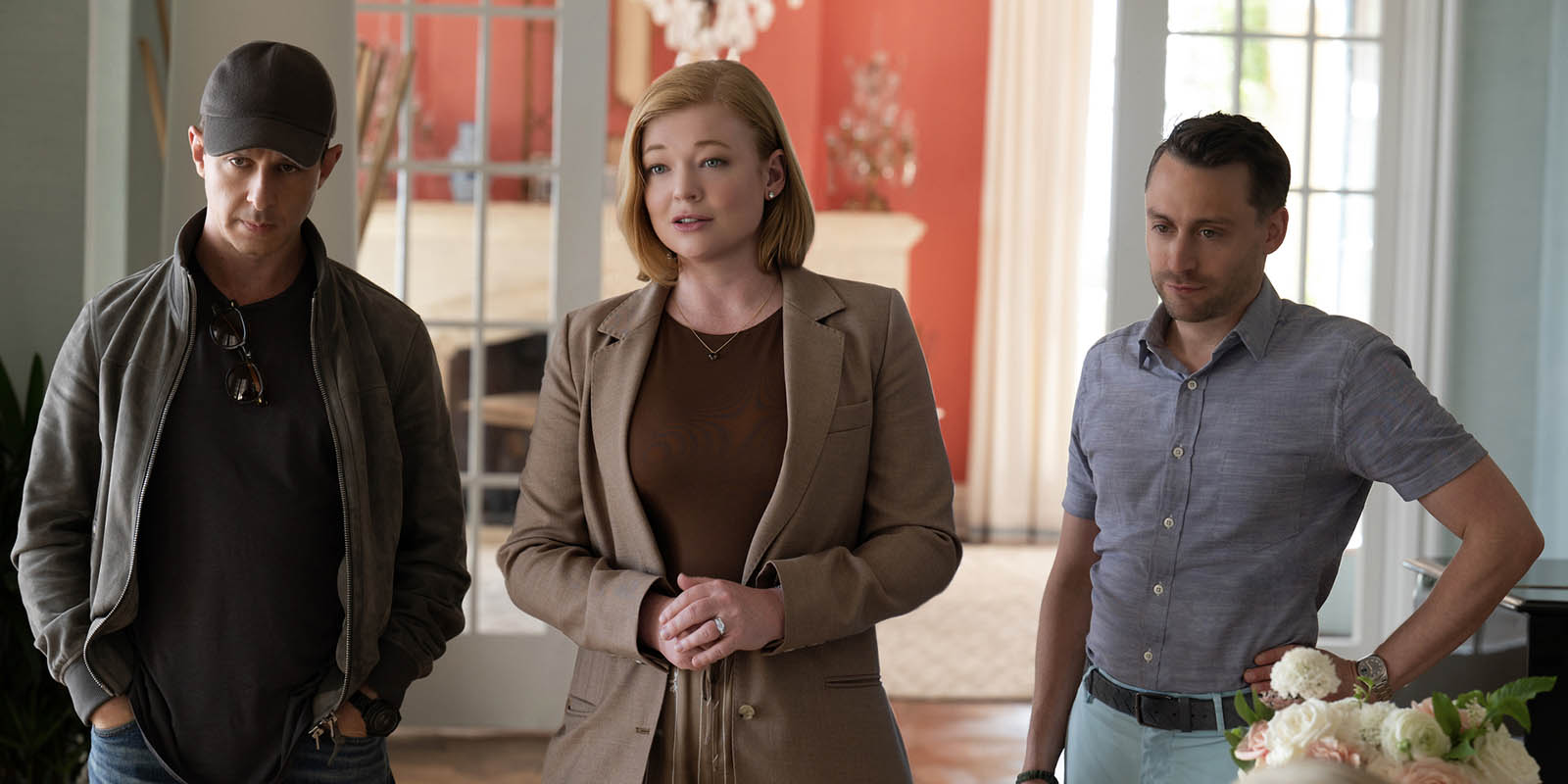 Brian Cox plays Logan Roy, the patriarch of the media empire Waystar Royco, on HBO's "Succession." (Courtesy of HBO)
Brian Cox plays Logan Roy, the patriarch of the media empire Waystar Royco, on HBO's "Succession." (Courtesy of HBO)
The fourth and final season of HBO's acclaimed TV show "Succession" opens with three of the Roy children united again in their effort to outsmart their father and replace him as head of media empire Waystar Royco.
"One of the joys of 'Succession' has been the way it's mined the tension between comedy and tragedy," says Susan Bandes, a professor emeritus in DePaul's College of Law. "The way these emotional dynamics infuse the business decisions and the legal issues that pervade the show is great television — and highly instructive."
In particular, the show is instructive for legal scholars and law students. Bandes and DePaul Visiting Professor Diane Kemker convene a weekly discussion group of scholars who are "Succession" fans to explore issues such as employment disputes, wills and trusts, and professional responsibility. With experts from around the country, including law schools at Case Western Reserve University, the University of Chicago, Howard University and the University of South Carolina, they named the group "The waystar/Royco School of Law."
Kemker, whose expertise includes legal issues in popular culture, maintains a blog for students and professors that features dozens of clips from scripted entertainment to teach issues of professional responsibility.
 Jeremy Strong, left, Sarah Snook and Kieran Culkin play three of Logan Roy's children in "Succession." (Courtesy of HBO)
Jeremy Strong, left, Sarah Snook and Kieran Culkin play three of Logan Roy's children in "Succession." (Courtesy of HBO)
"What lawyers and law students can bring is a more legally sophisticated, nuanced conversation about the show," Kemker says.
Each week, one member of the group leads a discussion based on their area of expertise, which tends to take one of two approaches. The first treats scenarios in the show as if they were real and examines the legal problems that arise.
For example, "Succession" character Greg Hirsch, affectionately known as "Cousin Greg", is being investigated for his role in covering up a company scandal. Both Waystar Royco and Greg's grandfather offer to pay for his attorney. A recent virtual discussion led by a University of Wisconsin professor examined the ethical implications of his conundrum.
The second approach, Kemker says, is in line with the study of law and literature – studying representations of the legal system and lawyers in popular culture and how they affect how people understand the field. Here the group has discussed depictions of high-powered women attorneys in the show, including corporate attorney Gerri Kellman and defense attorney Lisa Arthur.
For Bandes, a pioneer in the research of the role of emotion in the law, "Succession" is a treasure trove of examples. The drama isn't the first to be used in law lectures. In her classes on criminal procedure, she would use scenes from "The Wire" and "Law and Order."
"What makes 'Succession' unique, and makes the 'waystar/Royco School of Law' such a terrific vehicle is that the show demonstrates how pervasive emotion is in law — even the seemingly 'dry' provinces of law like corporations and mergers and acquisitions," Bandes says.
The discussion group serves as a lab for professors to experiment with ways of incorporating the show into their curriculum. And now that opportunity will extend beyond the couple dozen participants. A collection of articles based around the group's weekly presentations has been accepted for publication by the DePaul Law Review. It's slated for publication in 2024, after "Succession" wraps up later this spring.
Mary Hansen is a manager of strategic communications in the University Marketing and Communications division.